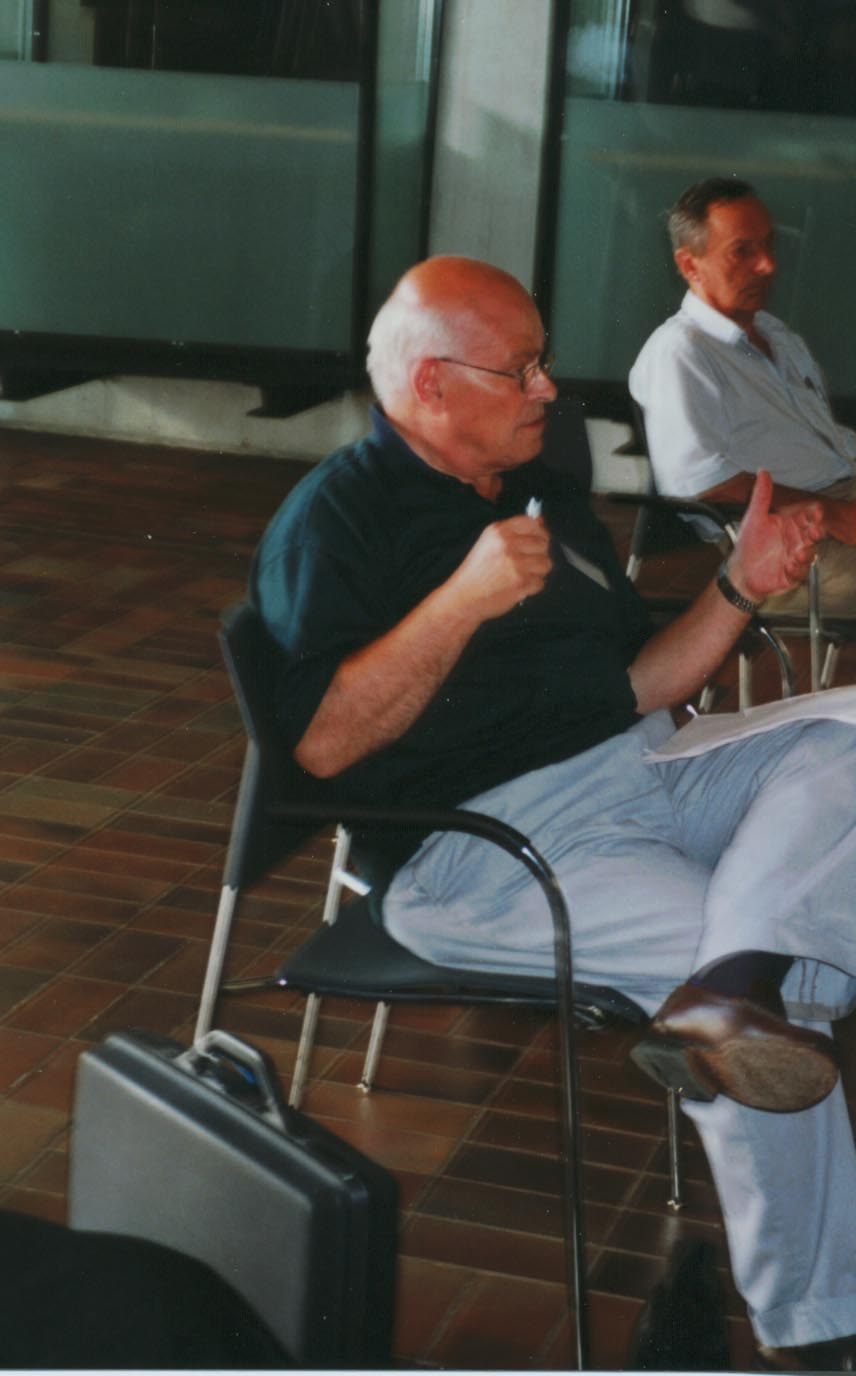|
European
Members Meet in Germany
|

Professor
Paul de Waart
|
IARF’s
European Conference took place from 26-28 July 2001
at the Evangelische Akademie in Bad Boll, Germany.
At this conference, speakers from Western and Central
Europe spoke on religious freedom issues both within
and outside the European Union (EU) and nearly 40
participants dialogued about some of the advances
made by religious minorities as well as problems still
to be overcome. At a more practical level, the conference
allowed IARF members in Europe to have input into
the programme for the upcoming 2001 World Congress
in Budapest next July.
Some of the main issues addressed during several workshop
sessions included discussions about state legislation,
religious education, and discriminations related to
religious dress. Participants agreed that a general
"knowledge deficit" in Europe required more
effort on the educational front, both education about
minority religious groups and efforts to promote "tolerance,
spiritual values, and responsibilities of faith,"
especially among children.
|
Professor Paul de Waart, Emeritus Professor of International
Law at the Free University in Amsterdam gave the keynote lecture
in which he reviewed the development of human rights law in
Europe. While questioning at times whether the new EU Charter
of Fundamental Rights was really going to provide additional
safeguards for religious freedom in the region, he noted that
the Charter (a document which came into effect only in December
of last year) would make more visible to European citizens
the overriding importance and relevance of human rights laid
down in other national and international instruments. (The
key articles from the Charter which relate to our work are
below:)
Article 10 - Freedom of thought, conscience and religion
Everyone
has the right to freedom of thought, conscience and religion.
This right includes freedom to change religion or belief and
freedom, either alone or in community with others and in public
or in private, to manifest religion or belief, in worship,
teaching, practice and observance.
Article
21 – Non discrimination
Any
discrimination based on any ground such as sex, race, colour,
ethnic or social origin, genetic features, language, religion
or belief, political or any other opinion, membership of a
national minority, property, birth, disability, age or sexual
orientation shall be prohibited.
Article
22 - Cultural, religious and linguistic diversity
The
Union shall respect cultural, religious and linguistic diversity.
Remarks
were also presented by Czeslaw Glogowski, (Poland), Ladislav
Pivec (the Czech Republic), and Mihaly Dobrovitz, (Hungary)
about the situation of religious freedom in those countries.
Copies of all speeches are available from IARF’s Secretariat
office in Oxford.
Bad Boll Final Statement
European members of IARF coming from various countries inside
and outside the European Union as it is currently constituted
met at Bad Boll, Germany, from 26-28 July 2001. They discussed
a range of issues affecting freedom of religion or belief
as part of human rights in Europe.
In
this context, the Charter of Fundamental Rights of the European
Union was recognised as an effective means to enhance the
legal status of human rights in general and the right to freedom
of religion and belief in particular in the present and future
member states of the European Union. It should also serve
as the proper legal framework of the decision-making processes
in the European Union and the interpretation and implementation
of the resulting decisions.
The
IARF underlined the importance of listening to the voices
of all the nations and peoples of Europe as they seek to implement
religious freedom as an inalienable right for every community
and individual. Specifically and particularly where religious
minorities are victims of discriminative legislation or practices
in the absence of state neutrality, IARF urges the implementation
of the right of religious freedom. This should be in terms
of recognition and/or non-discriminatory registration of religious
communities, protection of their rights to practise their
beliefs, and promotion of educational strategies, which prevent
intolerance and discrimination based on religion and belief.
|

